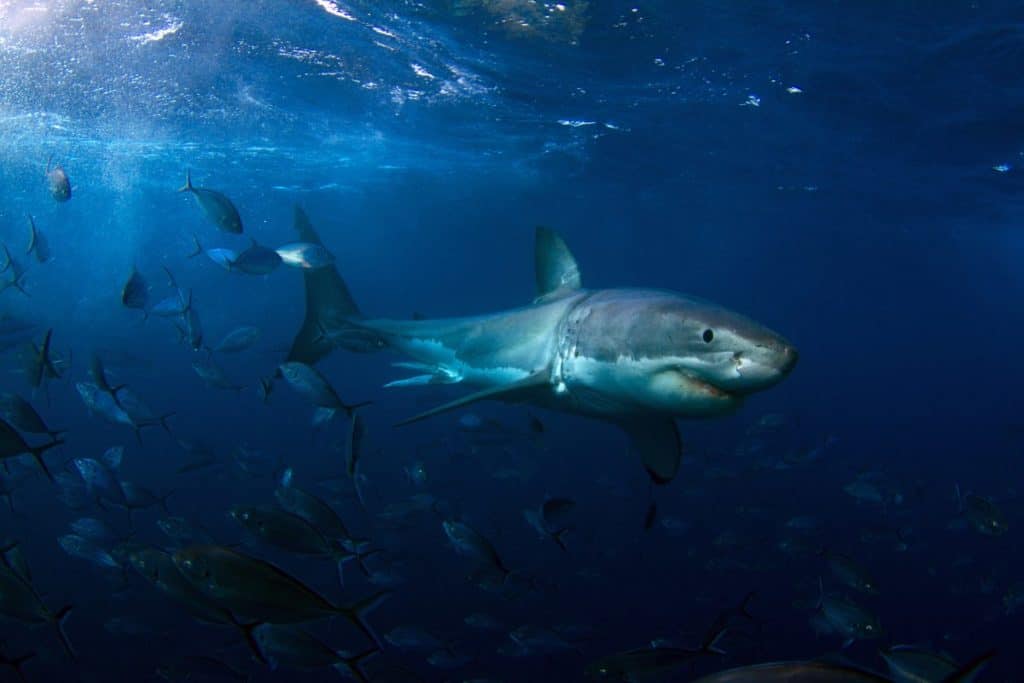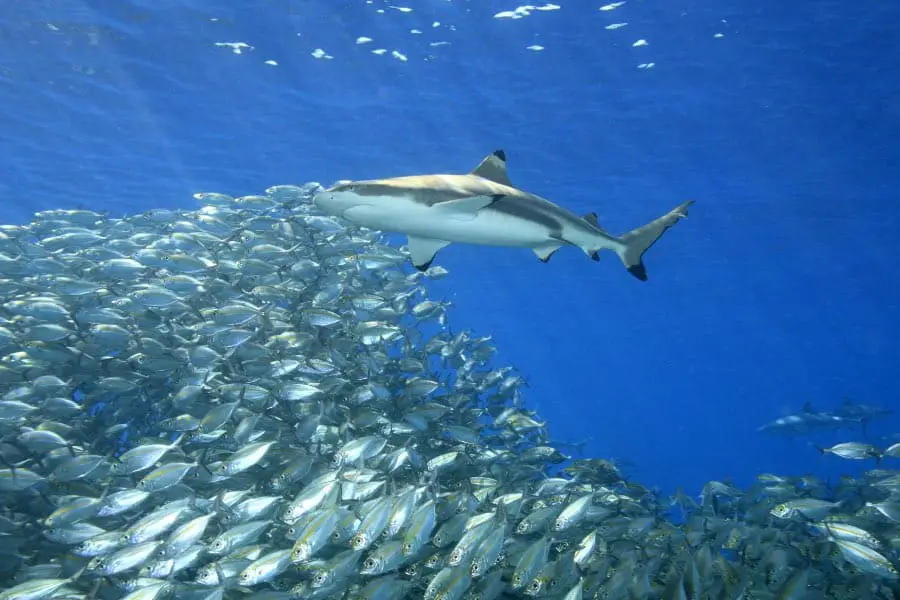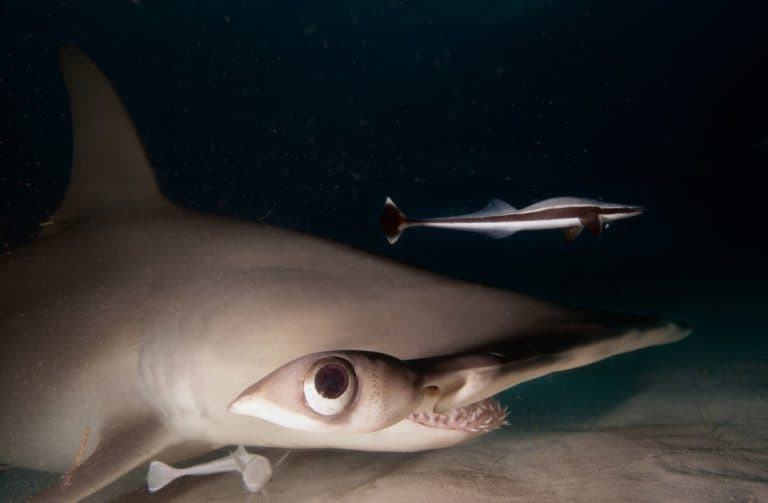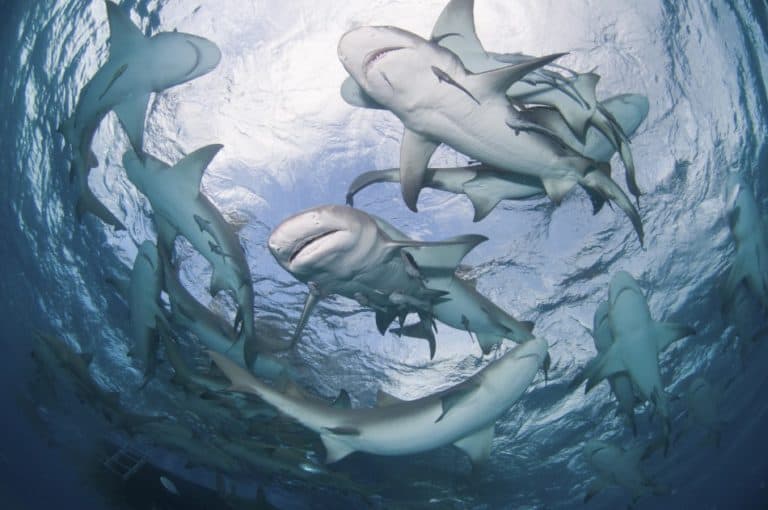Are Sharks Attracted to Blood? Get the Facts!
Sharks rarely mistake people for food, but there are circumstances where they have been known to attack humans, sometimes even if the person is bleeding or in the water near something.
That’s because sharks can sense minimal amounts of substances that indicate potential prey, including uric acid and lactic acid, which are found in human blood.
The fish are attracted to blood released into the water by another animal, such as a wounded fish or seal, but they are not interested in attacking an injured human.
The reason is simple: sharks don’t like the way we taste.
So, Are Sharks Attracted to Blood?
Yes and no. Sharks are definitely attracted to blood. However, they’re not really attracted to the blood of people; more specifically, they’re not actually that interested in feeding on people.
When you get bitten by a shark, it’s usually because the shark has mistaken you for its natural prey (a fish or some other marine animal), or it has mistaken you for a competitor or another shark trying to snatch its meal.
What is a shark’s sense of smell like?

Sharks have an excellent sense of smell which helps them to find food.
The shark’s nostrils are on the underside of its head, and they can be seen when it opens its mouth; this is because sharks breathe through their mouths, not their gills.
Sharks use a type of smell called Ampullae of Lorenzini, which means that they can detect electrical signals in water and pinpoint what kind of animal or fish made the signal.
The ampullae also help sharks find food by detecting tiny currents in the water (caused by movement, such as from a struggling fish). Sharks can even tell how far away something is by using their ampullae like radar beams!
How do sharks find their prey?

Sharks can detect blood from miles away and follow its scent to find their prey. They mainly use a system called olfaction, which allows them to smell the tiny particles carrying blood or other substances far away.
Sharks have hundreds of thousands of tiny pores all-around their snout and lips that help them smell better.
This system can track down other sea animals, even if they cannot see or hear them. But there is also another way sharks find their prey: chemoreception.
This one enables sharks to detect the presence of prey through chemicals specially secreted by their bodies. These fantastic predators will always find their target regardless of which system they use.
Why are sharks attracted to blood, and how does it work
The answer lies within their sensory organs: Sharks have Ampullae of Lorenzini, which detect electromagnetic fields coming from living things.
Researchers believe these cells help sharks sense prey as far as 10 feet away through murky waters since they don’t rely on sights like bony fish or mammals.
This means that sharks may use the electromagnetic field given off by blood (or any other heart) to locate their prey.
As for why sharks are attracted to blood, it’s because the Ampullae of Lorenzini can detect a feeble electrical charge from a wounded animal up to 1.8 miles away.
Even if a person is bleeding in the water and not obvious, a hungry shark might detect it.
Do all sharks have an attraction to blood or only some types of them.
All sharks have an attraction to blood, but some types of sharks prefer the smell and taste of certain animals.
Examples include tiger sharks like seals and bull sharks that prey on large mammals such as dolphins.
Some species even prefer birds over fish. Sharks are attracted to blood because they use it for food, but there are other factors why this is so important to them.
For example, when a shark eats something with lots of meat in its body, the blood flows out faster than water can enter, making the shark feel full faster because its stomach is stretched more by the more significant amount of flesh inside it.
Why do sharks attack when they smell blood?

The answer to this question is not as straightforward as you might think. Sharks don’t always associate the smell of blood with fresh meat and will often attack a wounded animal, but there are other reasons for an attack.
The smell of blood can attract sharks from long distances, and they may then swim in to investigate what’s going on (or because that’s where all the food is).
They also like chasing fish away from their territory or hunting them themselves because it means less work for them.
And finally, some sharks have turned into scavengers which means that if something dies nearby, they’ll come over to see what it was and sometimes try to eat whatever they find!
What Should I Do If a Shark Attacks?
A shark attack is a rare event, but it does happen. And if you’re the unlucky one who has to deal with such an event, what should you do?
The first thing you should know is that there are many myths about behaving during a shark attack.
For example:
“Don’t splash around and make noise; sharks can smell blood from miles away!”
This may be true for some species (although scientists disagree on this point), but not all. In any case, this advice could lead people into making mistakes that might put them at greater risk!
The best bet is just to try to get out of the water as quickly as possible and then call authorities or family members.
If you have done something to attract sharks’ interest, like swimming where they feed, try not to make any more movement than necessary.
How can I keep sharks away?
The most important thing you can do to avoid drawing attention from sharks is to stay away from what a shark might consider its food. This means not fishing, feeding fish, or swimming with fish in the water.
Sharks are naturally attracted to smaller marine life and have learned that humans may look like a source of food.
Swimming away does not work as sharks can reach 31 miles per hour (about 50 kilometers per hour) in short bursts.
Instead, avoid swimming with fish, especially in murky water or near deep channels or drop-offs where sharks can hide.
You should also avoid swimming at dawn or dusk when sharks are most active feeding and tend to be closer to shore, moving between their shallow coastal waters and deeper oceanic water hunting for food.
Of course, you should always avoid swimming with open wounds.
Am I safe if there are no sharks in the water?
The absence of sharks does not make the water safe. Many other animals live in our oceans that can cause harm, including jellyfish, moray eels, seals and sea lions, barracuda, and stingrays.
FAQ:
Does pee attract sharks?
While it is theoretically possible for urine to attract sharks, the amount of urine discharged by bathers in the ocean would be negligible compared with other sources of marine organic matter.
Shark feeding behavior is also a much more complex process than simply following a trail of urine.
And in the unlikely case that a shark was attracted by urine, the salt and urea content would undoubtedly be diluted to negligible levels when mixed with seawater.
Do sharks go crazy when they smell blood?
Sharks only go crazy if they smell human blood because human blood contains amino acids, urea, and uric acid, found in urine. They are not attracted to the iron in the hemoglobin of the red blood cells.
What attracts sharks to humans?
Sharks have no interest in humans as a food source, so there is very little chance of being attacked by a shark just for that reason.
If you are standing, swimming, or diving near/through their common prey species, then that may attract them to you because they are thinking about what might be chasing their food!
Remember the golden rule in shark-infested waters: Do not swim or dive where you see large schools of fish.






